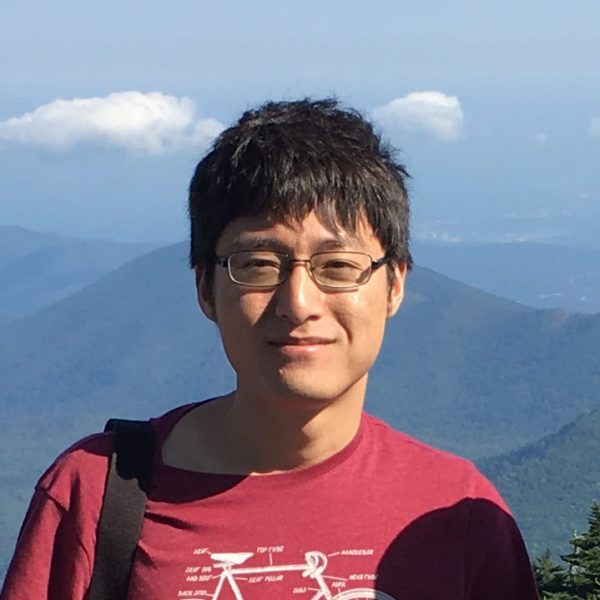
What is your position or role in the DESI project?
I’m a postdoc at Berkeley Lab since 2019. I have been involved in DESI since 2016 while I was a graduate student at University of Pittsburgh. I have worked on various aspects of DESI, including target selection, survey operations, and the DESI imaging surveys. I enjoy working on the interface between observation and theory, turning the data from the telescope into data and measurements that theorists can compare their models against. The day-to-day work involves a lot of programming, sometimes detective work to figure out what is causing issues in the data, and occasionally writing up the work into papers.
What is the most interesting or exciting thing about your job?
While working on the DESI imaging surveys, I would often examine the data quality by scrolling over images in the Legacy Surveys Viewer, and I’m always fascinated by how vast and beautiful our universe is. And I’m still amazed by the fact that, by mapping out these tiny (and seemingly random and chaotic) blobs of light on the night sky, we are learning something fundamental about our universe. And just as gratifying is being able to work with and learn from this great team of people that are so knowledgeable, enthusiastic, and kind.
Where were you born? And where do you live now?
I was born and grew up in Chongqing, China, also known as the “mountain city” and “city of fog” and was China’s provisional capital during WWII. It’s famous for its “mala” (literally numbing and spicy) food such as the hot pot. I went to school in Chongqing and the neighboring city of Chengdu, before coming to the US for my PhD degree. I currently live in the San Francisco Bay Area.
What do you do for fun?
I enjoy hiking, cycling, swimming, tennis, badminton, reading, cooking, listening to podcasts, learning new things on youtube, and casual photography.
If you weren’t a scientist, what would be your dream job?
It’s hard to imagine not being an academic of some sort. But if I were not a physicist, a few interesting careers come to mind, in no particular order: biologist/geneticist, geologist, historian, or economist.
Any advice for an aspiring scientist?
Do what you love. One of the best decisions in my life is switching to doing astronomy in the middle of graduate school when I knew barely anything about astronomy or cosmology, and turning a hobby (amateur astronomy) into a career.